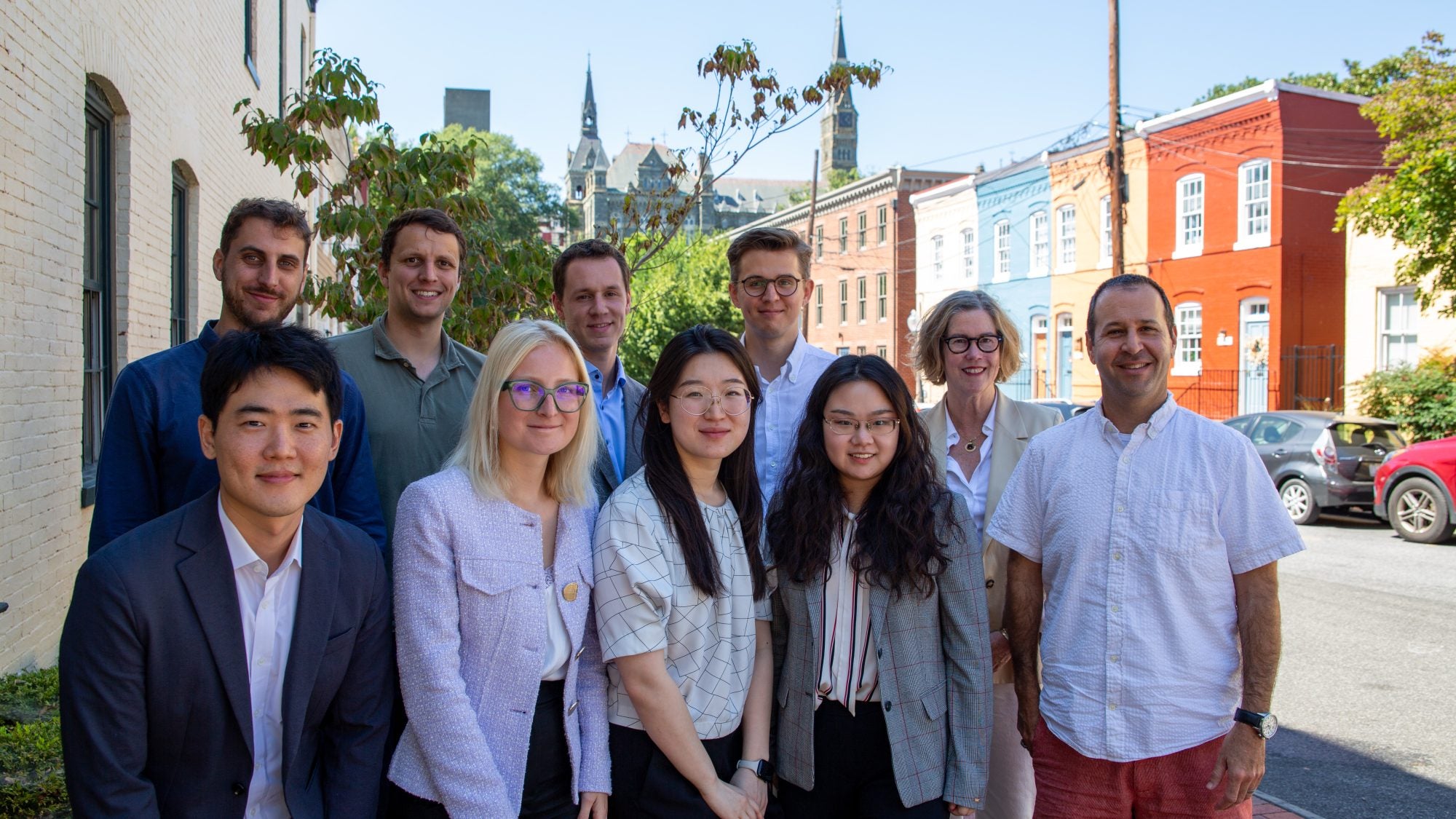Jialu Li is a 2024-2025 pre-doctoral GPEP fellow, hosted at the Mortara Center, Georgetown University. She is a PhD candidate in the Department of Government at Harvard University. Her research focuses on how states and firms navigate foreign economic coercion and geopolitical conflicts.
1. What excites you about the GPEP fellowship?
Throughout my PhD studies, I have been intrigued by how multinational firms lobby and to what extent policymakers are receptive to their lobbying activities. The GPEP fellowship provides a unique opportunity for me to immerse myself in enlightening discussions with the sharpest minds in the field. These scholarly interactions have directly shaped my research—one of my dissertation chapters examining how economic sanctions influence foreign companies’ political lobbying in the U.S. emerged directly from conversations with fellow GPEP researchers.
2. What is your research about?
My work examines how states and firms navigate economic coercion and geopolitical conflicts. As states weaponize trade policies against rivals and sometimes even allies, these measures trigger complex adaptive responses from other states and businesses. My research examines the multifaceted adaptations across different actors: (1) how China shields domestic firms through industrial policies when facing U.S. sanctions; (2) how sanctioned Chinese and Russian firms strategically form new partnerships to maintain market access and channel political influence; (3) the ways in which non-targeted multinational firms develop coping strategies, creating ripple effects through global supply chains. In my other work, I also study how U.S. subsidies and electoral competition shape American firms’ reshoring location choices, and the effects of WTO rulings on subsidies, transparency, and cooperation.
3. How did you become interested in your topic?
I have been fascinated by international political economy since my college days. The footloose nature of multinational firms, combined with the rising emphasis on sovereignty in trade policies, has created ongoing tensions between states and businesses. When I first started my PhD studies, the U.S.-China trade war erupted, and I was shocked by the rapid escalation of conflicts between the world’s two largest economies, and how paradigm-shifting decisions on tariffs and trade sanctions — which impact billions of people’s lives — were made. While most media reports focused on the retaliatory actions publicly announced, I became increasingly drawn to investigating how states employ more “hidden” measures and how firms navigate these turbulent waters by strategically adapting their business and political strategies.
4. How did you like DC so far? And what would be some of the things you still want to try or do in DC?
As a food lover, I find DC such a lovely place to live. I have a long list of museums and restaurants I hope to try in DC and have only completed about half of them so far. One of my favorite places is Sashimi DC, owned by a former World Bank staffer who spent lots of time learning about FDA and import regulations on sanitary and phytosanitary products to comply with trade regulations.
5. What is your favorite way to spend your spare time?
I enjoy exploring new local restaurants, going rock climbing with friends, and watching detective movies on weekends.



